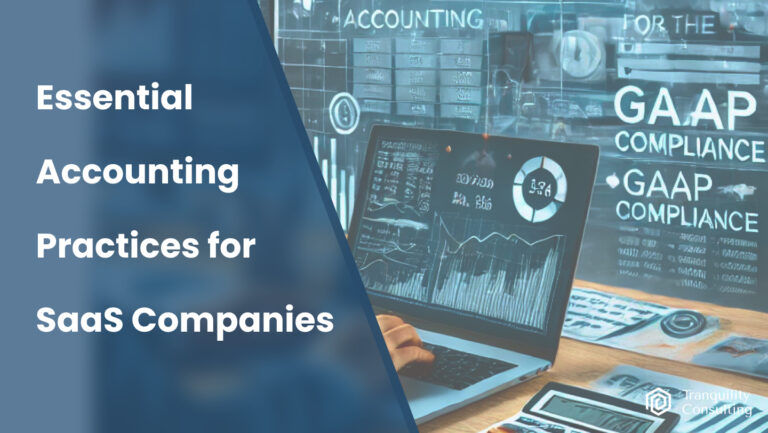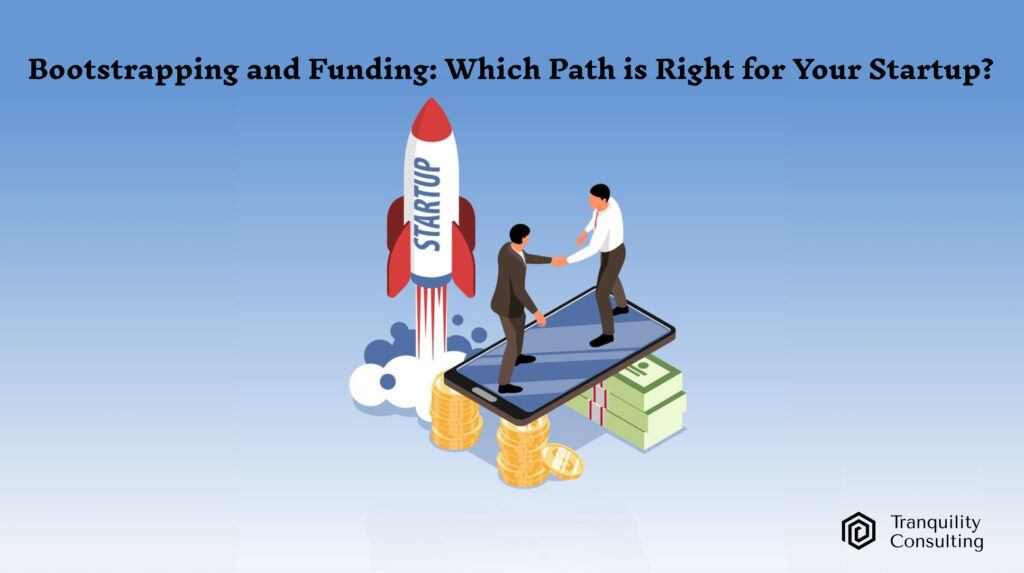SaaS is a quickly expanding market that provides various services for businesses with particular financial management and accounting for SaaS companies is big challenges. SaaS organizations conduct business on subscription, thus differing from traditional software businesses that go in for one-time sales. Such change introduces various challenges in revenue recognition, expense management, and financial statements. Consolidation and accuracy are essential for most SaaS to gain credibility, meet legal requirements, and attract investors for further expansion.
This guide will explore the key areas of accounting in SaaS businesses that are most important to all Software-as-a-Service organizations engaged in financial Management, reporting, revenue, and expenses. New and mature SaaS companies need to keep these principles in mind and apply them as a general rule for the financial health of future SaaS companies.
Understanding Revenue Recognition in SaaS:
The Importance of Revenue Recognition
- Revenue recognition is a critical aspect of accounting for SaaS companies. Unlike traditional businesses, where revenue is recognized upon the sale of goods or services, SaaS companies must recognize revenue over the life of the subscription. Customers pay for ongoing access to Software rather than making a one-time purchase.
ASC 606 Compliance
- The Financial Accounting Standards Board (FASB) introduced ASC 606, which provides a framework for revenue recognition across all industries, including SaaS. Under ASC 606, revenue must be recognized as the performance obligations are satisfied. For SaaS companies, this means recognizing revenue estimated over the subscription period rather than at the point of sale.
Subscription Models and Their Impact
- SaaS companies often offer subscription models, such as monthly, annual, or multi-year plans. Each of these models has a different impact on revenue recognition. For example, an upfront yearly subscription should be recognized as revenue over 12 months, not at the time of payment. This approach ensures that the financial statements accurately reflect the company’s financial performance and obligations.
Deferred Revenue
- Deferred or unearned revenue is a liability on the balance sheet representing payments received before the service is provided. For SaaS companies, managing deferred revenue is essential to maintaining accurate financial records. As services are rendered over time, the deferred revenue is gradually recognized as earned.
Financial Reporting for SaaS Companies
Importance of Accurate Financial Reporting
- Accurate financial reporting is crucial for SaaS companies, especially those seeking investment or preparing for an IPO. Investors and stakeholders rely on financial statements to assess the company’s financial health, profitability, and growth potential.
Management Information System (MIS) in SaaS Accounting
A Management Information System (MIS) plays a vital role in SaaS accounting by providing timely and relevant financial data to support decision-making. MIS helps SaaS companies track key performance indicators (KPIs), monitor financial health, and ensure accurate reporting. With a robust MIS, SaaS companies can:
- Annual Recurring Revenue (ARR): This represents the total revenue a company expects to receive annually from its subscription services.
- Monthly Recurring Revenue (MRR): Like ARR but measured every month, MRR provides insights into the company’s short-term revenue trends.
- Churn Rate: The percentage of customers cancel their subscriptions during a given period. A high churn rate indicates issues with customer satisfaction or product value.
- Customer Lifetime Value (CLTV or LTV): The total revenue a company can expect from a single customer throughout their relationship. CLTV is a crucial metric for understanding the long-term value of customers.
- CAC Payback Period: The time it takes for a company to recover its customer acquisition costs through revenue generated from those customers.
- Financial Statement Preparation
SaaS companies must prepare the following critical financial statements:
- Income Statement: Reflects the company’s profitability over a specific period by comparing revenue with expenses.
- Balance Sheet: Provides a snapshot of the company’s financial position at a specific point in time, showing assets, liabilities, and equity.
- Cash Flow Statement: This statement tracks the cash flow in and out of the business, providing insights into liquidity and operational efficiency.
Revenue Forecasting
- Accurate revenue forecasting is essential for SaaS companies to plan for growth, manage expenses, and secure funding. Revenue forecasting involves predicting future revenue based on historical data, subscription trends, and market conditions. Effective forecasting can help SaaS companies make informed hiring, marketing, and product development decisions.
SaaS Accounting Software and Tools:
Specialized SaaS Accounting Software
- Given the unique accounting needs of SaaS companies, specialized accounting software can be invaluable. Tools like QuickBooks, Xero, and SaaSOptics are designed to handle subscription billing, revenue recognition, and financial reporting for SaaS businesses. These platforms streamline accounting processes, reduce errors, and ensure compliance with industry standards.
Integration with CRM and Billing Systems
- SaaS companies should integrate their accounting software with Customer Relationship Management (CRM) and billing systems for optimal efficiency. This integration allows seamless data flow between sales, billing, and accounting, reducing manual data entry and improving accuracy. Tranquility Consulting, a leader in Zoho CRM implementation, can assist SaaS companies in integrating these systems for enhanced financial management and reporting.
Automating Financial Processes
- Automation is critical to managing the complex financial operations of a SaaS business. By automating processes such as invoicing, payment collection, and revenue recognition, SaaS companies can save time, reduce errors, and ensure that financial data is always up to date. Advanced accounting tools can automate these tasks, allowing finance teams to focus on more strategic activities.
Challenges and Best Practices in SaaS Accounting:
Managing Deferred Revenue and Subscription Billing
- One of the biggest challenges in SaaS accounting is managing deferred revenue and subscription billing. SaaS companies must ensure they accurately track payments received in advance and recognize revenue over the subscription period. Implementing robust billing systems and accounting software can help manage this complexity.
Staying Compliant with Accounting Standards
- Compliance with accounting standards, such as ASC 606, is non-negotiable for SaaS companies. Failure to comply can result in financial misstatements, penalties, and loss of investor confidence. Regular audits and reviews of accounting practices are essential to ensure ongoing compliance.
Adapting to Growth and Scale
- As SaaS companies grow, their accounting needs become more complex. Expanding into new markets, introducing new products, or scaling operations can create new challenges in revenue recognition, expense management, and financial reporting. SaaS companies must continuously adapt their accounting practices to meet these evolving needs.
Leveraging Expertise in SaaS Accounting
- Given the complexities of SaaS accounting, many companies benefit from partnering with accounting experts specializing in the SaaS industry. These professionals can provide guidance on best practices, ensure compliance with accounting standards, and help optimize financial performance.
Conclusion:
Accounting for SaaS companies is a complex but critical function that requires specialized knowledge and tools. To maintain financial health and achieve long-term success, SaaS companies must navigate various challenges, from revenue recognition to expense management and financial reporting. SaaS companies can ensure accurate financial reporting and make informed decisions that drive growth by implementing best practices, leveraging specialized accounting software, and staying compliant with industry standards.
FAQs
- What is the importance of revenue recognition for SaaS companies?
- Revenue recognition is crucial for SaaS companies as it ensures that revenue is accurately recognized over the subscription period, reflecting the ongoing nature of the service provided.
- How do SaaS companies manage deferred revenue?
- SaaS companies manage deferred revenue by recognizing it as a liability when payment is received and gradually recognizing it as revenue over the subscription period as services are rendered.
- What accounting software is recommended for SaaS companies?
- Specialized accounting software, such as QuickBooks, Xero, and SaaSOptics, is recommended for SaaS companies to manage subscription billing, revenue recognition, and financial reporting.
- Why is it essential for SaaS companies to monitor Customer Acquisition Costs (CAC)?
- Monitoring CAC is essential for SaaS companies to ensure that the cost of acquiring new customers is justified by their revenue over their lifetime, thereby maintaining profitability.
- How can Tranquility Consulting assist SaaS companies with accounting challenges?
- Tranquility Consulting can assist SaaS companies by integrating Zoho CRM with accounting and billing systems, automating financial processes, and ensuring accurate financial reporting through customized solutions.
If you have any questions or need business-related tax consulting advice, please contact us at: [email protected]





